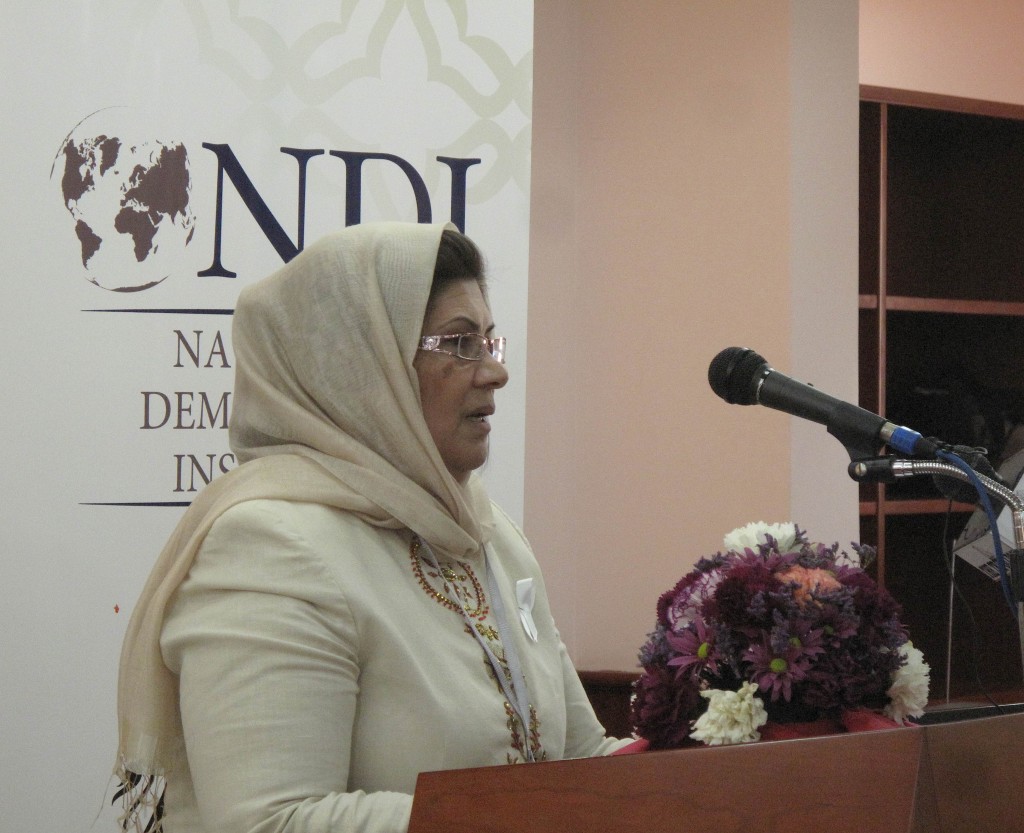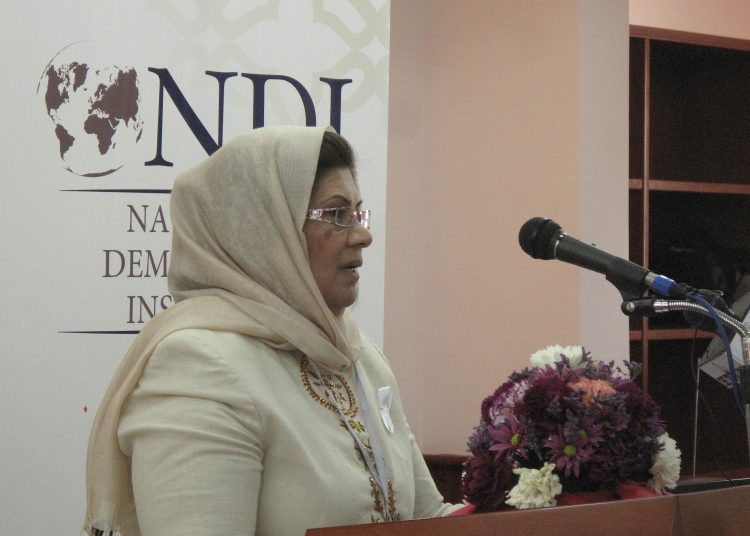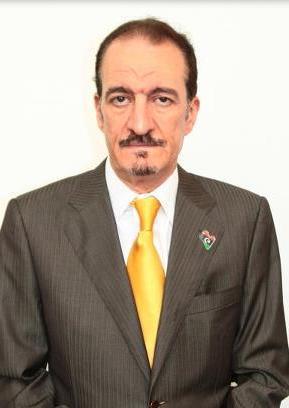By Nancy Porsia

Tripoli, 9 March 2013:
Crowded full of women, the Ghadames Hall at the Haroon Hotel hosted on Friday morning a . . .[restrict]celebration of International Women’s Day organized by the women elected to the General National Congress (GNC), the National Democratic Institute (NDI) and the British Embassy.
On the occasion of the anniversary of the International Day to End Violence against Women, NDI launched its program to strengthen the capacity of legislators and representatives, and help women establish cross-party mechanisms for collaboration, platforms for civil society engagement, and networks of support.
The country director of NDI, Carlo Benda, inaugurated the ceremony. “As a father, husband and human being, I strongly believe that it is important to support the struggle of women against violence.”
The Deputy Ambassador of the United Kingdom, Jill Fraser, guaranteed the full support of her country to the project. “The presence of women in the GNC today clearly reflects the progress made by Libyan society. Women have played an extremely important role during the revolution against Qaddafi and continue to do so today. “, she added.
The Minister of Social Affairs, Kamila Khamis Al-Mazini, took the opportunity to remember all the women who still suffer from the war. “My first thought goes to the Syrian women”, the minister said, “we must not forget our sisters in Syria, Egypt and Tunisia who suffered with us at this historic moment, and they still suffer, specially our Syrian sisters. Today we face the challenges which decades ago European women faced. We must struggle for our rights “, Mazini added.
The women elected to the GNC were seated in the front line at the celebration. They were: Huda Al Bannani, Suad Sultan, Amina Mahjub, Suad Ghannur and Asthma Serriba.
Huda Al Bannani, elected to the GNC from a district in Benghazi, is currently a member of the GNC Chambers Affairs Committee and Finance and Budget committee. “I have never felt discriminated against by my male colleagues. But the popular attitude doesn’t respect the important role of the woman in society and we must work on it”.
She remembered the role of women during the revolution. “As mothers, wives and sisters we have pushed our men to fight. We sent them to die for the freedom of the country and today we mourn our martyrs, but proudly. Today it is necessary to remember that!”
NDI advertises itself as a nonprofit, nonpartisan, nongovernmental organization that has supported Democratic Institutions and practices in every region of the world for more than two decades. The NDI also claim that since its founding in 1983, it and its local partners have worked to establish and strengthen political and civic organizations, safe-guard elections, and promote citizen participation.
Immediately after the end of the revolution, in October 2011, NDI opened its office in Tripoli. “The big challenge”, says the country director Carlo Benda, “is the transitional justice. We do not teach them how to approach this delicate phase of their history, but we support them through the sharing of experiences and ideas. ”
At the end of the ceremony, the buffet offered by NDI provided an opportunity for women to discuss the next steps of the programme launched today. Many Libyans from civil society are now involved in the programmes carried out by NDI in Libya.
These include programmes on governance, political parties, civil society, elections and youth and women.
Nancy Porsia is an Italian freelance journalist and producer specialized in the Middle East. She previously worked as a journalist and producer at Current TV in Italy. Her latest features from Syria, Lebanon and Libya realized during the Arab Spring have been published in several magazines, radio and television stations like RAI, L’Espresso, AKI ADNkronos, LaVanguardia, Tyzden, Radio1 Rai and Radio 24.
Nancy speaks Arabic, English and Italian and currently lives in Tripoli, Libya.
[/restrict]








